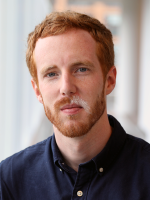On the Code Switch podcast, we often use the term "people of color." And it's not something we thought a ton about until the Black Lives Matter protests reignited in May, and we saw a refrain across social media, particularly among Black people: Stop calling me a person of color.
Many felt that people using the term POC were (intentionally or not) sidestepping the truth: that certain effects of racism — things like mass incarceration, police violence, inability to access good health care — disproportionately affect Black and Indigenous people. Not all "people of color."
The popularization of BIPOC only furthered the debate. Was this relatively newer term highlighting the particular experiences of Black and Indigenous folks? Or was it an homage to wokeness with no real teeth?
Even terms that have been created with the best of intentions can morph in meaning. We asked academics, writers and our listeners some big questions: What do we mean when we say "people of color"? Why do some of us identify with that term? Why does it annoy so many other people? Is it time to say R.I.P. to POC? And, if so, is BIPOC the new kid on the block?
In this video episode of Code Switch, we interview political psychologist Efrén Pérez, activist and educator Amber Starks, and organizer Mónica Rámirez.
We've got a deeper dive into all this on our podcast episode here.
You can listen to the Code Switch podcast on NPR One, Apple Podcasts, Spotify, Pocket Casts, Stitcher, Google Podcasts and RSS.
Copyright 2021 NPR. To see more, visit https://www.npr.org.





